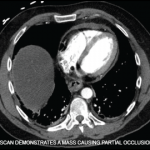Interstitial lung disease (ILD) can be associated with rheumatoid arthritis (RA) with significant morbidity and mortality. An article in The Journal of Rheumatology focused on calculating the prevalence, incidence, mortality and costs to the healthcare system of RA-related ILD (RA-ILD).1 “RA is the most common of connective tissue diseases encountered by rheumatologists—affecting about 1% of…








